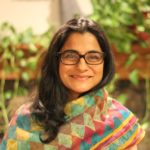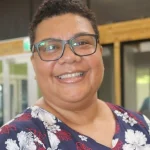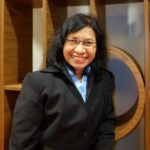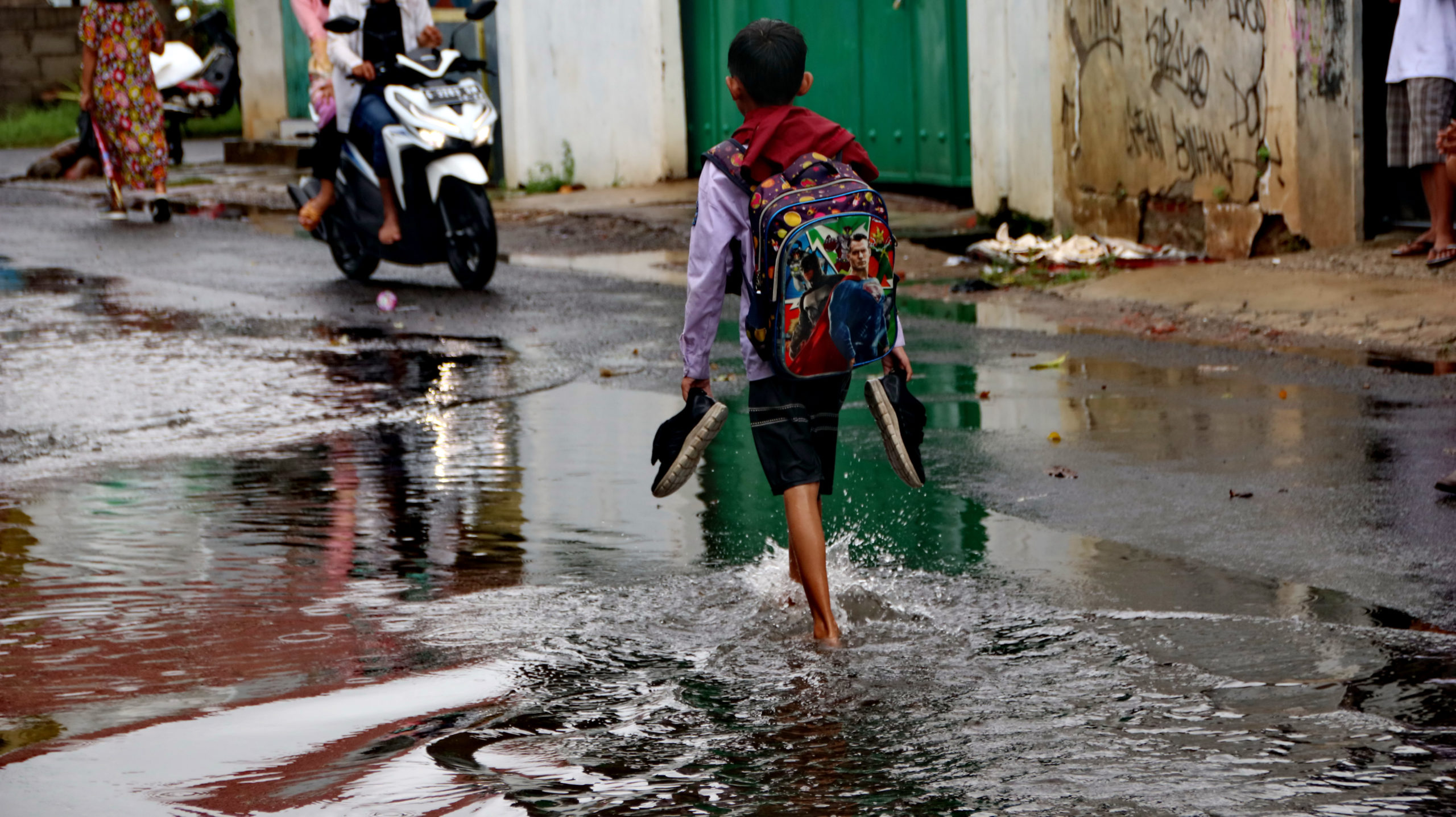KIX EMAP Webinar 21: Climate Change and Education in Southeast Asia and the Pacific
Date: Wednesday, 27 November 2024
Time: 5:00 – 7:00 AM (CET / Geneva)
10:00 AM – 12:00 PM (BTT / Thimphu)
11:00 AM – 1:00 PM (WIB / Jakarta)
5:00 – 7:00 PM (TOT / Tonga)
Location: Online
The webinar will be conducted in English.
Climate change, environmental degradation, and climate shocks have an adverse impact on children’s well-being and their ability to attend school and continue learning. These extreme weather events also affect schools and other teaching and learning infrastructure, in addition to affecting teachers and communities, potentially destroying entire education systems and putting a significant strain on countries’ ability to provide education.
Currently, approximately 1 billion children (i.e. nearly half of the world’s children) live in countries that are at an extreme risk of suffering the impacts of climate change. The situation is further exacerbated in the East Asia and Pacific Region, where 41% of children face 5 or more overlapping climate and environmental shocks and stresses, as compared to a global average of 14%.
Given the increasing frequency of climate shocks, both adaptation and mitigation measures are critical to enable education systems to adequately address climate change so that children continue to learn. Equally, education can be a powerful tool to mobilise climate action and lead the path to more sustainable societies.
The KIX EMAP Hub is organising Webinar 21 aimed at sharing knowledge about how the issue of climate change is being incorporated into various facets of education policy and planning, with a particular focus on Southeast Asia and the Pacific Islands.
The webinar seeks to bring together diverse and critical perspectives from policymakers, education administrators, civil society, and multilateral organisations, in order to unpack the key issues and opportunities in mainstreaming the issue of climate change in education systems. The webinar will also highlight countries’ experiences in this area, including tensions inherent in existing approaches and some alternatives.
Speakers
 Sarah Beardmore, Strategic Partnerships and Capabilities Team Lead, Global Partnership for Education
Sarah Beardmore, Strategic Partnerships and Capabilities Team Lead, Global Partnership for Education
Sarah Beardmore has spearheaded the Global Partnership for Education’s work on climate change, which is mobilizing technical support, climate finance and political momentum to leverage the power of education for climate action. She currently heads the Strategic Partnerships and Capabilities team at GPE, where she oversees a portfolio of cross-sectoral initiatives to address critical challenges – such as violence, poor nutrition and gender discrimination – which impede children’s well-being and educational outcomes. Sarah also led the development of GPE’s $140 million fund for civil society accountability and transparency, Education Out Loud, which is now the largest fund for advocacy in the global south. She has over 20 years of international experience including a decade leading on policy advocacy and resource mobilization for child rights, economic justice, gender equality, maternal health and indigenous rights.
 Radhika Iyengar, Director of Education at the Center for Sustainable Development, Earth Institute, Columbia University
Radhika Iyengar, Director of Education at the Center for Sustainable Development, Earth Institute, Columbia University
Dr Radhika Iyengar is a research scholar and the Director of Education at the Center for Sustainable Development, Earth Institute, Columbia University. She leads the Education for Sustainable Development initiatives and international education development as a practitioner, researcher, teacher and manager. She has written numerous books and articles on Education for Sustainable Development. Her recent publication investigates community-based environmental factors that foster environmental education. Dr Iyengar received the prestigious Early Career Award from Teachers College, Columbia University in 2020. She serves as a board member for numerous environmental NGOs.
 Rosiana Lagi, Deputy Head of School (Learning, Teaching and Quality), School of Pacific Arts, Communication and Education, The University of the South Pacific
Rosiana Lagi, Deputy Head of School (Learning, Teaching and Quality), School of Pacific Arts, Communication and Education, The University of the South PacificDr. Rosiana Kushila Lagi is a teacher by profession and an early career researcher who acquired her PhD in Education focused on the topic Na Bu: an exploratory study of Indigenous Knowledge of Climate Change and Education in Ovalau Fiji at the University of the South Pacific (USP) in 2015. Her interest in Indigenous Knowledge developed as she was growing up learning from her elders whose daily activities were dictated by the condition of their fenua environment. Currently, she is working with communities and teachers in Tuvalu on weaving in the Traditional Knowledge of Climate Change and best traditional practices in the school curriculum and community policies. In addition, she is working with the Foundation for Youth Development in researching and building capacity on lost traditional knowledge and skills of forecasting weather as well as mitigating and adapting to the environmental changes. Her other areas of interest include traditional approaches to research and teaching; Education for Sustainable Development and Climate Change; teacher education in the South Pacific, Human Development and Vernacular Education.
 Stien Matakupan, Special Project and Project Advisors, Pusat Study Pendidikan dan Kebijakan (Center for Education Research and Policy)
Stien Matakupan, Special Project and Project Advisors, Pusat Study Pendidikan dan Kebijakan (Center for Education Research and Policy)
Stien’s journey as a Special Project and Project Advisor at Center for Education and Policy studies Indonesia began as a high school teacher in Ciputra, teacher trainer and a lecturer in Sampoerna University, Jakarta. She is board member of the iCaretakers of the Environment International, a network of high school teachers and students active in environmental education. She was a technical team for Indonesia green school program, and developed the road map for environmental education in Indonesia. Stien also involved in the Education for Sustainability Forum led by the National Institute of Education-Singapore. Recently she also contributed to the design of Indonesia’s climate change education curriculum. Stien has research interests in teacher education policy, curriculum, and education for sustainable development. She holds a Doctorate in population and environmental education from Jakarta State University, and is a graduate of the advanced international training program at Uppsala University, Sweden, and the advanced international training program on local environmental management at the LIFE Academy, Sweden.

Subarna Sivapalan, Associate Professor & Head of the School of Education, University of Nottingham Malaysia
Dr. Subarna Sivapalan, FRSA, SFHEA is an Associate Professor and Head of the School of Education, University of Nottingham Malaysia and Research Lead of the Sustainability and Transformational Education Research Cluster (STERC). She also leads the University of Nottingham UNESCO Chair in International Education and Development Malaysia Office. She has over 20 years of experience within the higher education sector. At the national level, Subarna is actively involved in sustainability education advocacy. She is presently the Co- Chair of the National Education for Sustainable Development Association of Selangor. She also sat on the National Committee of WWF Malaysia’s Foundation for Environmental Education (FEE) Eco Schools Programme, and has held the role of Chair and Deputy Chair of the FEE Eco Campus Programme. At the international level, Subarna is an Acumen Fellow, the world’s school for social change. She is also a fellow of the United Nations University Pro.SPER.Net Leadership “Building Transformational Leadership Towards The SDGs”. Subarna is the recipient of WWF Malaysia’s National Eco-Lecturer Award for her efforts in advocating for greater awareness amongst youth to champion sustainability. She has also received awards for Effective Education Delivery and Academic Leadership. Subarna is the recipient of the prestigious Lord Dearing Award for her efforts in advocating and advancing education for sustainable development and is the ESD lead at the University of Nottingham Malaysia.
Do Duc Lan, Head of International Cooperation Division, The Vietnam Institute of Educational Sciences | Ministry of Education and Training
Agenda and additional speaker details to follow
Eligibility
Anyone is eligible to participate. The webinar is particularly aimed at policy makers, education stakeholders, officials, teachers and academic researchers. To access the webinar, you need to register in advance. Please spread the news about this event to your colleagues and networks, and on social media: @NORRAG and @KIXEMAP.

